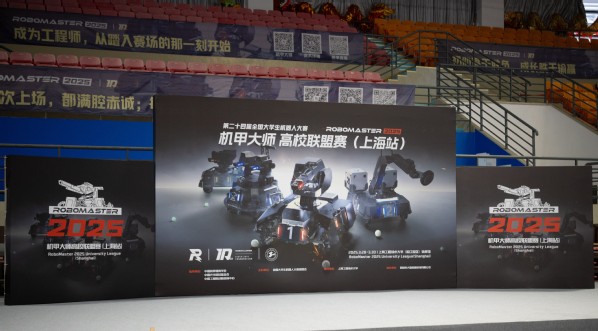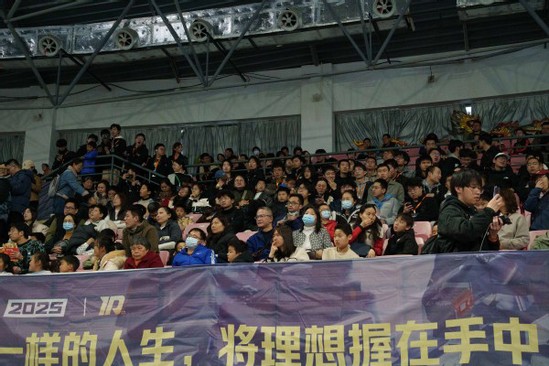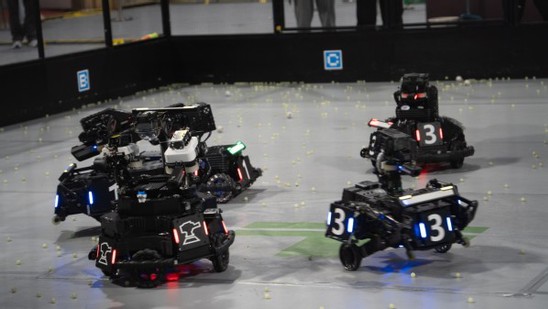From March 28th to 30th, the 24th RoboMaster 2025 University League Competition, guided by China Higher Education Association, China Guanghua Science and Technology Foundation, and Strategic Consulting Center of the Chinese Academy of Engineering, was hosted by the National University Robot Competition Organizing Committee, and once again organized by SUES. Shenzhen Dajiang Innovation Technology Co., Ltd. co-organized the RoboMaster 2025 University League Competition (Shanghai Station). The event was held at the Gymnasium of the Songjiang Campus of SUES. This event attracted teams from 40 universities across the country, including Shanghai Jiao Tong University, Fudan University, and the Chinese University of Hong Kong, Shenzhen.

The RoboMaster Robotics Master University Series 2025 has three competitive events: 3V3 confrontation, infantry confrontation, and engineering challenge. In the 3V3 match, both sides of infantry robots, hero robots and sentry robots will engage in tactical confrontation in the designated competition venue. The winner will be the one who accumulates the most victory points. The infantry confrontation game uses an infantry robot to engage in fierce competition on the battlefield, weakening the opponent's strength by shooting enemy armor modules. In the engineering challenge, each team's engineering robots will complete the tasks of mining and exchanging minerals, and the scores will be ranked based on the completion degree and speed of the exchange.

On the evening of March 30th, the competition came to an end. The teams that won the championship, runner-up, second place and third place in the 3V3 competition were Nanjing University of Science and Technology, Shanghai Jiao Tong University, Tongji University, and Jincheng College of Nanjing University of Aeronautics and Astronautics. The teams that won the first, second, third and fourth places in the infantry competition were: Fudan University, Tibet Agricultural and Animal Husbandry College, Nantong Institute of Technology, and Chinese University of Hong Kong, Shenzhen. The teams that won the first, second and third places in the Engineering Challenge were: Shanghai University of Electric Power, Changshu Institute of Technology, and Nanjing University of Science and Technology, Jiangyin.
After the award ceremony, a Young Engineers Exchange Meeting was held, where the team from Shanghai University of Science and Technology shared their experience in robot hardware, and the team from Tibet Agricultural and Animal Husbandry College, which was 4,000 kilometers away, brought their experience and insights from participating in the competition.

It is reported that the RoboMaster Robotics Competition for College Students, as one of the important events of the National College Student Robot Competition, deeply integrates cutting-edge robotics disciplines such as machine vision, embedded system design, mechanical control, artificial intelligence and human-computer interaction, and fully demonstrates the excitement and charm of robot confrontation. The event attracts more than 400 colleges and universities around the world to participate actively every year, and has contributed more than 50,000 young engineers to the society. It has also carried out a number of industry-university-research cooperation projects with hundreds of universities, including talent cultivation and laboratory co-construction, injecting strong impetus into scientific and technological innovation and talent cultivation.
